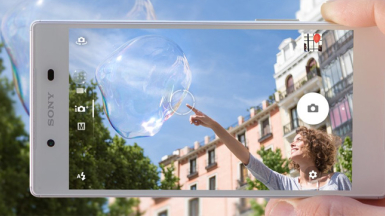
Samsung has been known to pull out all the stops, including making their devices as awesome as possible. That includes keeping close watch over their competitors, particularly Sony.
Apparently, the Korean-based company has been keeping tabs on the Sony Xperia Z5, specifically the IMX300 sensor that the device's camera boasts of, as reported by PhoneArena. But what would Samsung want with it considering they already have an impressive ISOCELL feature sensor on hand?
Well, if Samsung does pursue the camera sensor, there is a chance that Samsung could end up using the two sensors interchangeably, which could eventually depend on the region where the eventual Samsung Galaxy S7 would be bought.
The only problem right now is exclusivity. Sony is expectedly wanting the IMX300 sensor exclusive for its Xperia line of devices, but Samsung is reportedly determined to get one for the Galaxy S7.
If Samsung is persistent, the said sensor could eventually become a business opportunity of sorts, seeing that the Samsung Galaxy S7 is bound to sell as rampant like its other models.
What makes the IMX300 sensor so special? Well, it is believed that the said sensor is actually a 25-megapixel sensor that could be scaled down to 23 megapixels (16:9) or 21 megapixels (4:3). Could this pose a problem for Samsung in the long run considering that their ISOCELL sensor is only 20 megapixels?
The IMX300 success is, apparently, attributed to its 192-point hybrid autofocus system that allows the Sony Xperia Z5 to have fast focus times at 0.03 second minimum.
So what could Samsung eventually end up with? How can it properly market a 20-megapixel sensor and another at 23 megapixels for the Samsung Galaxy S7?
The pricing standpoint could be one; but given that customers could care less nowadays about pricing as long as the features justify it, such could become a problem if Samsung succeeds in dealing with Sony for that impressive camera sensor technology.













